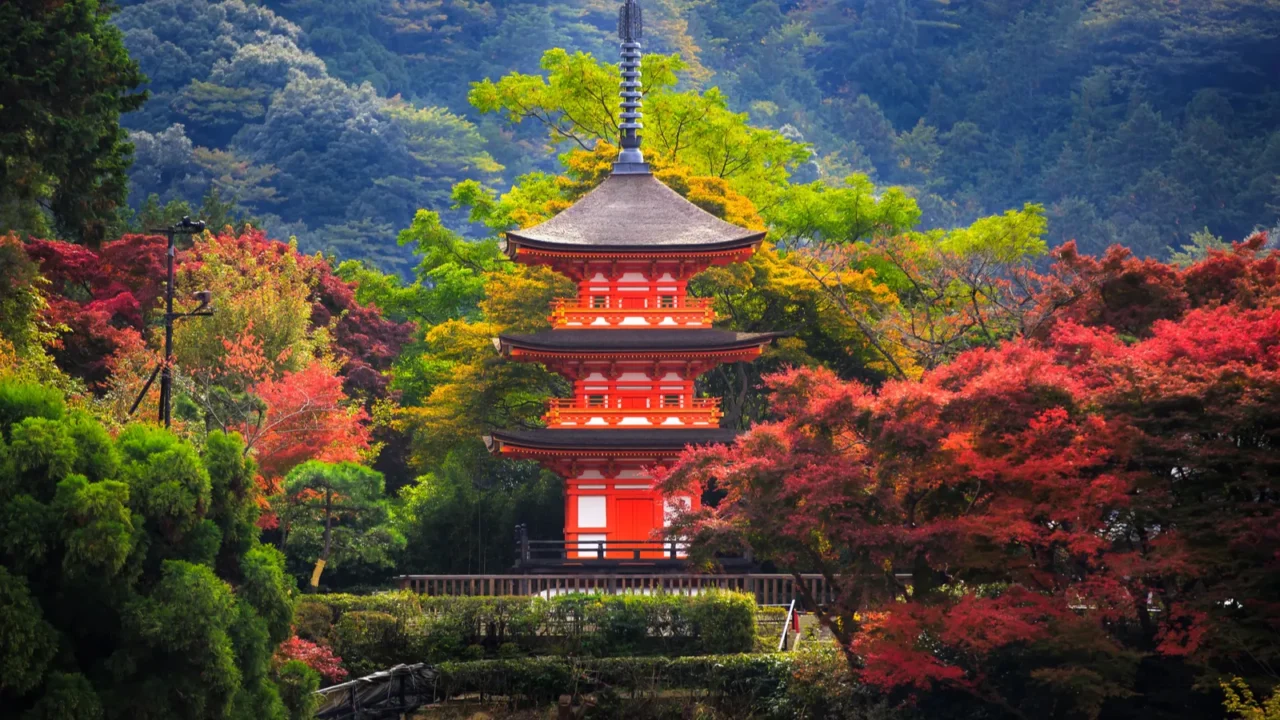
The magic of Japan in 2025
Japan never stops amazing travelers, and 2025 makes the experience even better. This year, travelers are greeted with smoother access, fresh cultural events, and even high-tech upgrades like seamless contactless ticketing.
Shrines perched on misty mountains, glowing beaches lit by natural wonders, and valleys that feel untouched by time now share space with futuristic art islands and buzzing cities. With new high-speed rail lines reaching once-remote corners, Japan feels more open, accessible, and endlessly surprising than ever before.
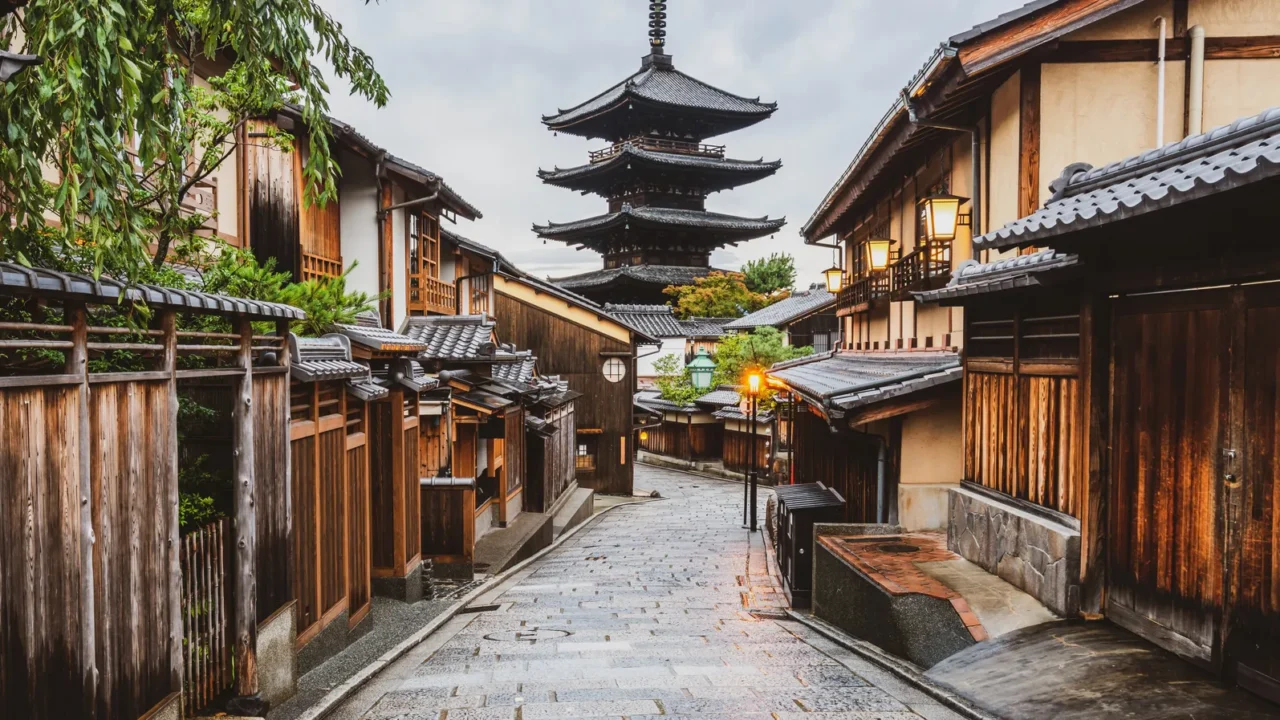
Gion district, Kyoto
Step into Kyoto’s old-world charm in the Gion district, famous for its teahouses and wooden homes. Many of these structures date back to the 17th century, giving the streets an authentic glow.
If you’re lucky, you might spot a geiko or a maiko in an elegant kimono, keeping centuries of tradition alive. In 2025, evening dance performances will be open to more visitors, making the culture easier to experience.
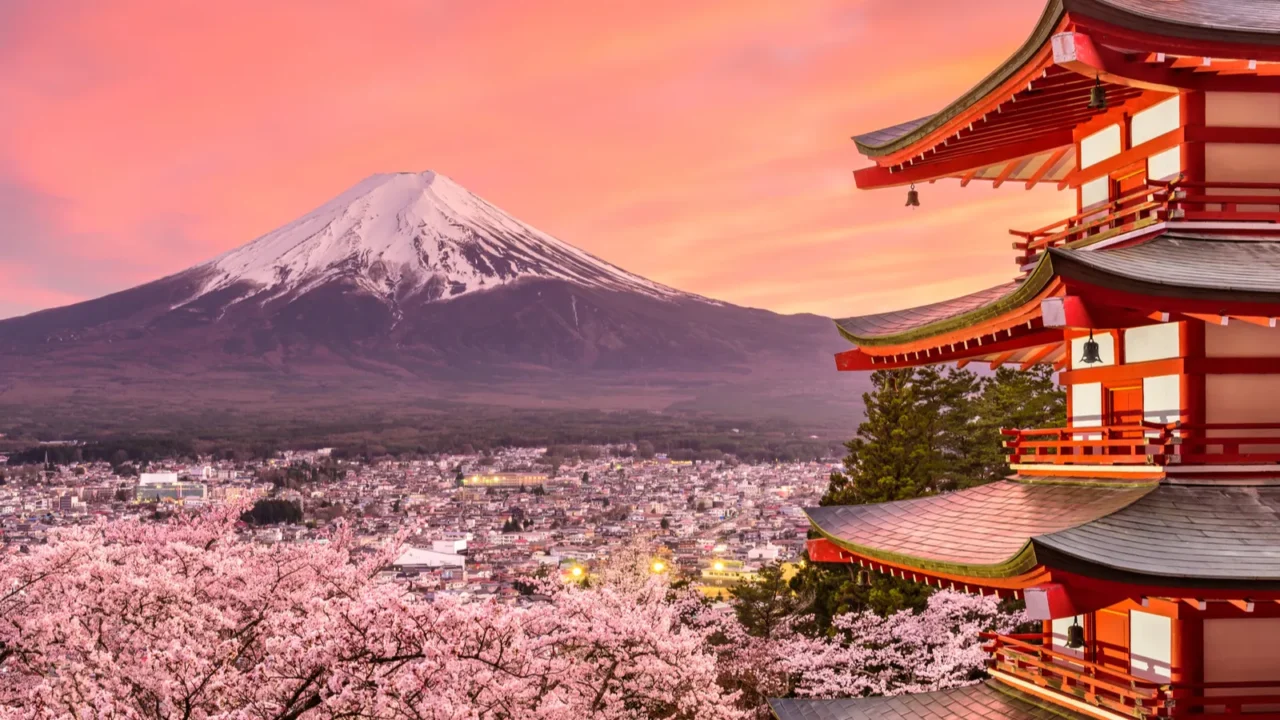
Mount Fuji and Kawaguchiko Lake
Nothing defines Japan’s landscape like Mount Fuji, and Kawaguchiko Lake is the perfect place to see it. As one of the Fuji Five Lakes, its reflection of the peak creates picture-perfect views.
Visitors can cycle around the lake, take boat rides, or enjoy cherry blossoms in spring and fiery leaves in fall. With new electric bike rentals, exploring the lakeside feels easier and more fun.
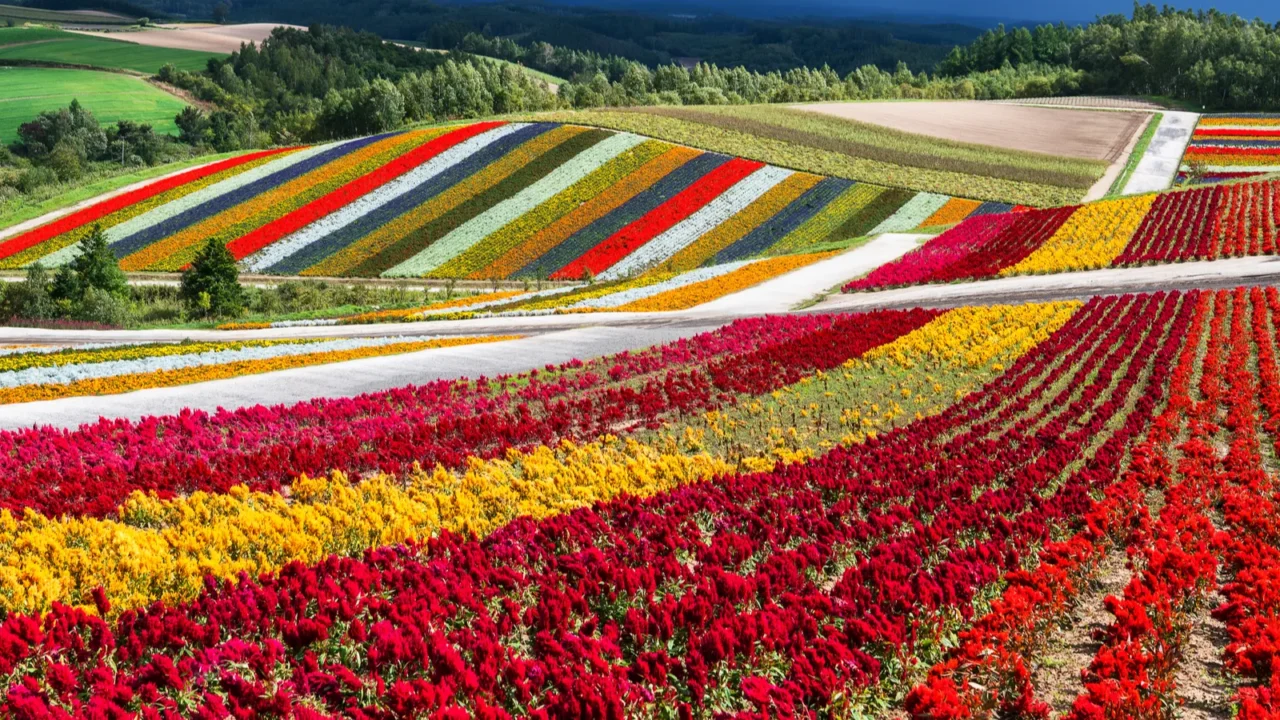
Hokkaido’s flower farms
Hokkaido’s farms are a feast for the eyes, especially in summer when rolling fields bloom with lavender, sunflowers, and poppies. Farm Tomita in Furano is one of the most famous spots, drawing visitors for its rainbow-colored rows.
Beyond flowers, the farms showcase fresh produce and dairy that Hokkaido is known for. Local cafés serve lavender ice cream and cheese made on-site, adding flavor to the view. Seasonal festivals now make these farms a cultural stop, not just a scenic one.
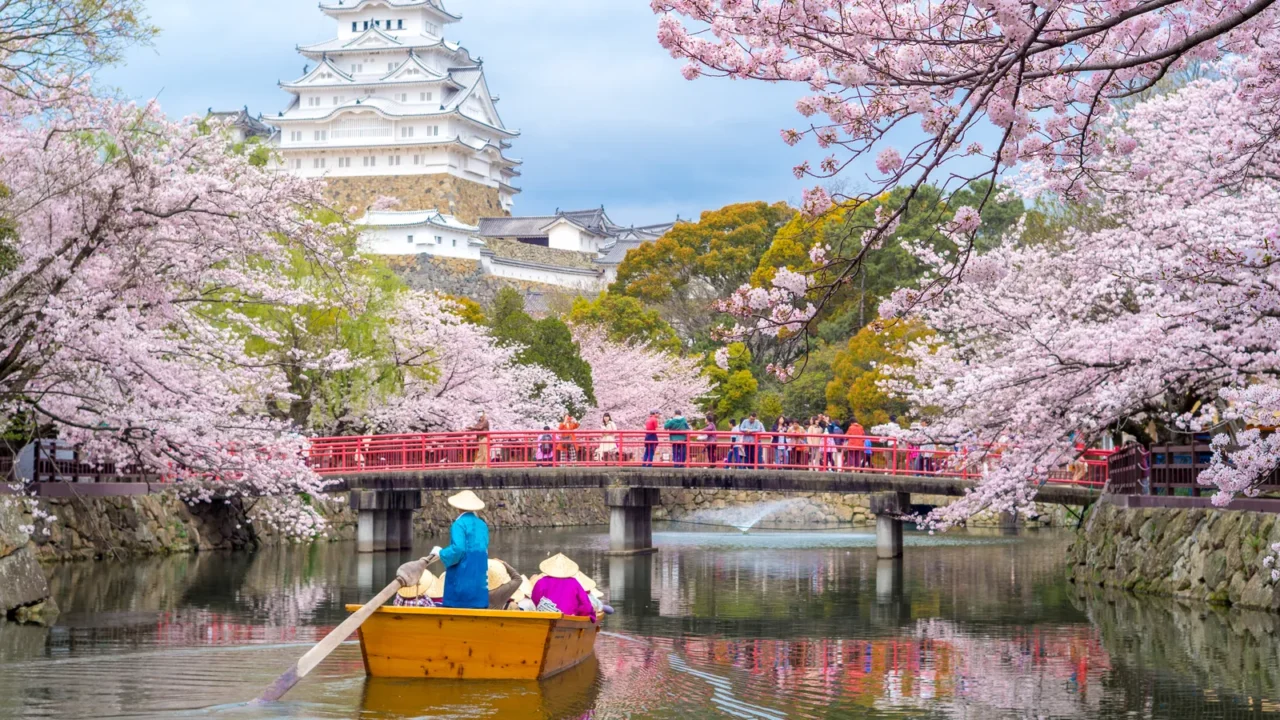
Himeji Castle, Hyogo
Nicknamed the “White Heron Castle,” Himeji is one of Japan’s finest original castles. Having survived wars, earthquakes, and bombings untouched, it stands as a symbol of resilience.
Inside, wooden corridors and historic displays reveal centuries of stories. At night, special illuminations highlight the castle’s silhouette while the grounds glow with spring blossoms.
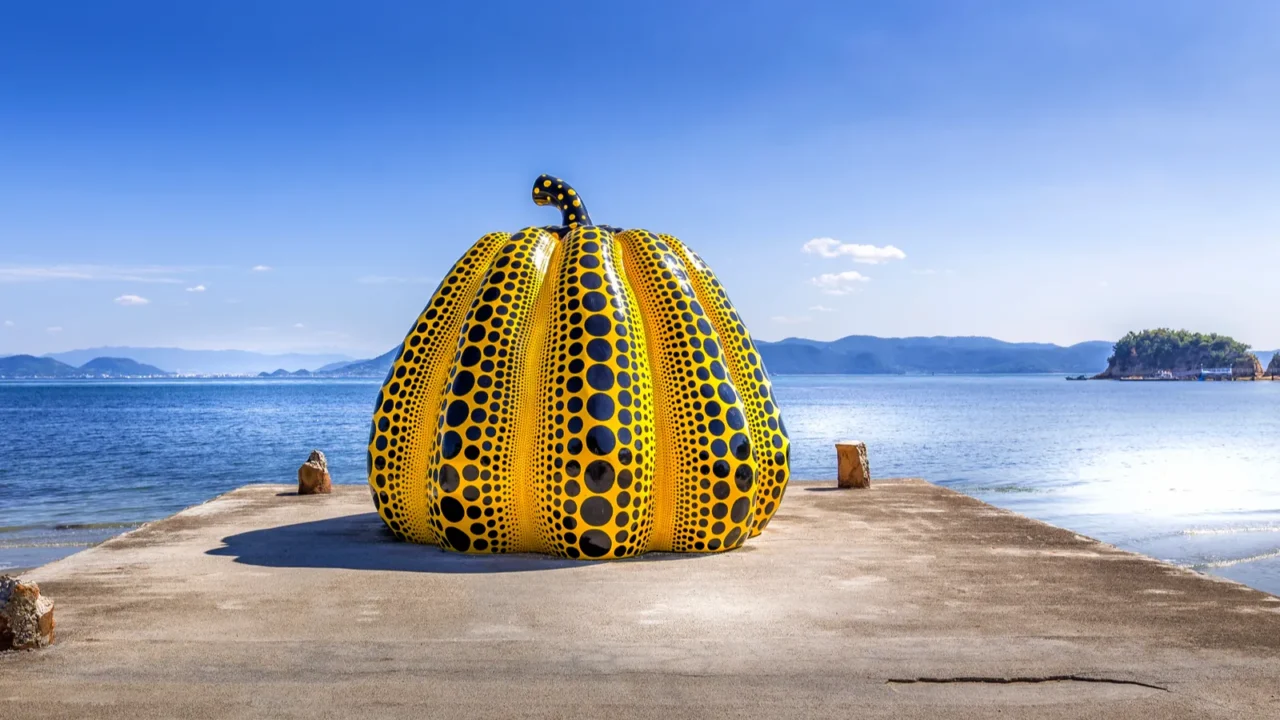
Naoshima Island, Seto Inland Sea
Naoshima is where modern art meets nature. Dotted with museums, outdoor sculptures, and architecture blending into the coast, the island is also home to Yayoi Kusama’s famous yellow pumpkin.
In 2025, the Setouchi Triennale festival returns with new installations and performances. For the first time, interactive digital art displays will be part of the lineup.
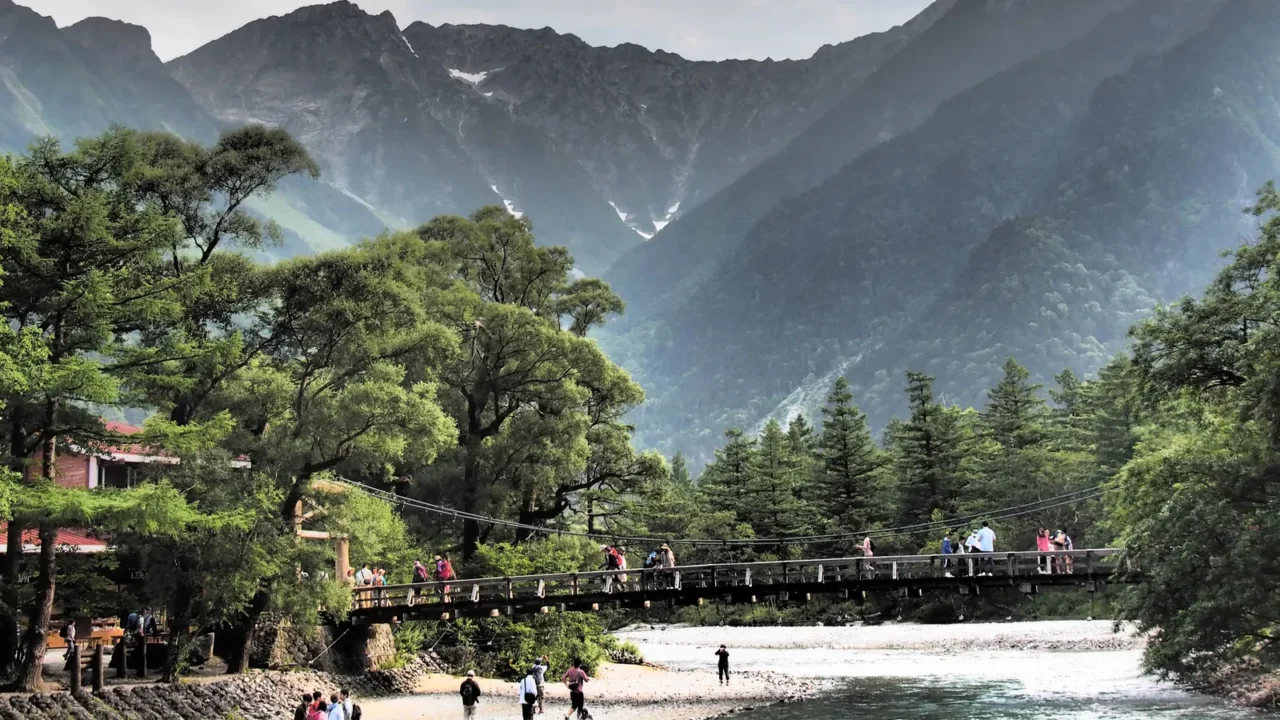
Kamikochi, Northern Alps
Kamikochi is a mountain paradise, surrounded by untouched forests and towering peaks. Shuttle buses make the car-free zone easy to access while protecting its ecosystem.
Hikers cross suspension bridges, follow river paths, and breathe in crisp alpine air. The view from Kappa Bridge remains the valley’s most iconic scene.
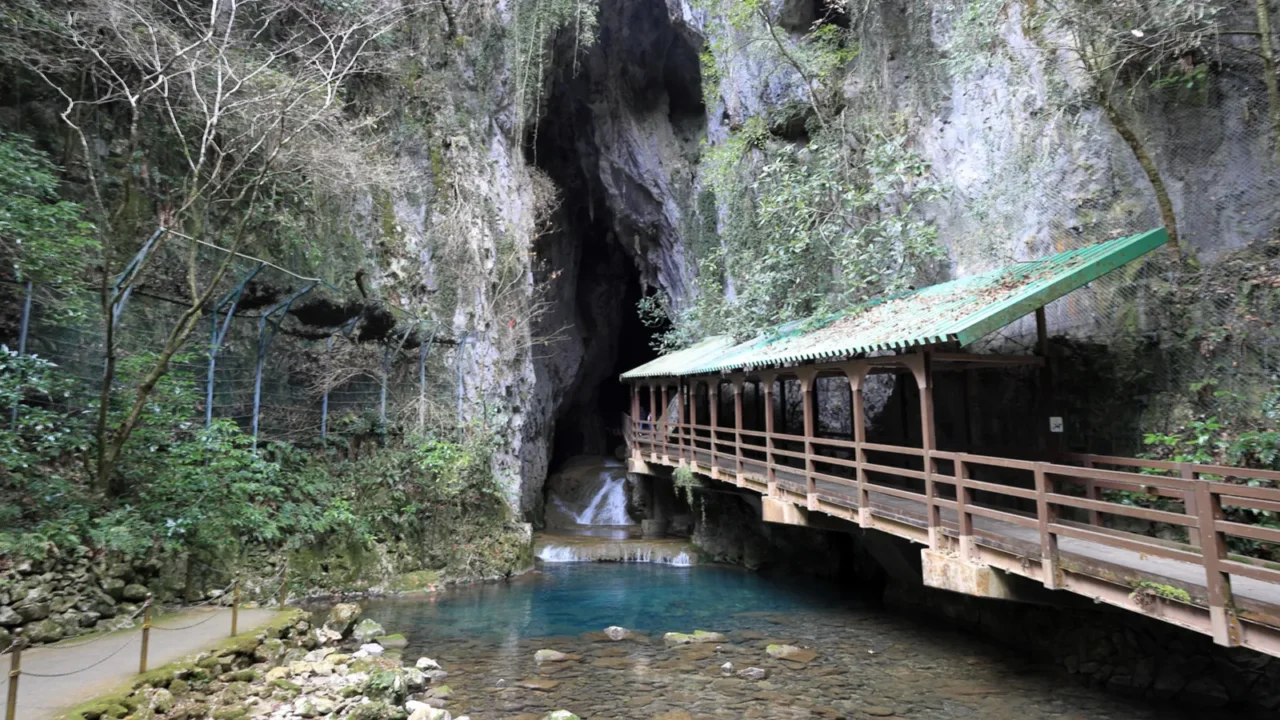
Akiyoshidai Plateau and caves
Stretching across Yamaguchi, Akiyoshidai is Japan’s largest limestone plateau. Its rolling grasslands even host rare summer orchids that attract nature lovers.
Below ground, Akiyoshido Cave reveals stalactites, underground rivers, and cool passages. Extending for six miles, only a section is open to visitors, keeping much of it preserved.
Fushimi Inari Shrine, Kyoto
The endless path of bright red torii gates at Fushimi Inari feels almost dreamlike. Dedicated to the Shinto god of rice, more than 10,000 gates donated by worshippers wind up Mount Inari in mesmerizing rows.
Climbing higher rewards you with peaceful forest trails and breathtaking views of Kyoto below. Sunrise visits are especially magical and far less crowded than afternoons.
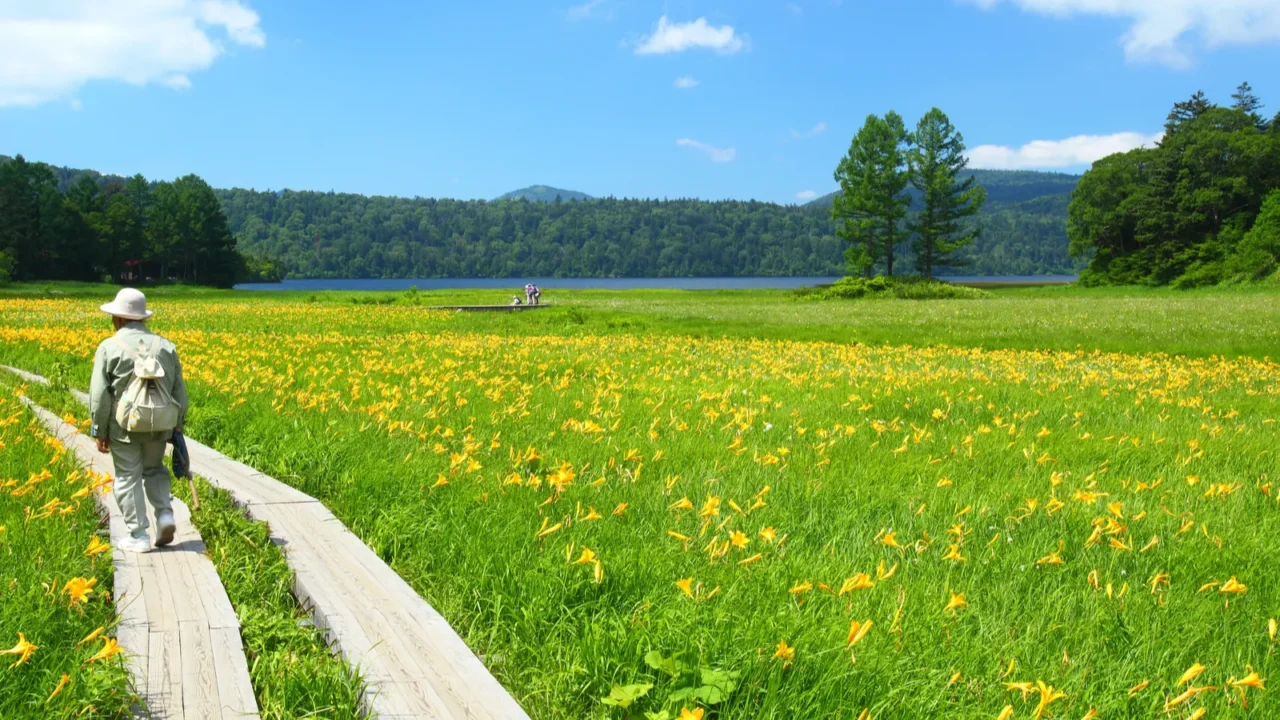
Oze National Park
High in the mountains, Oze National Park is a landscape of marshlands, streams, and open skies. Known as Japan’s largest highland marsh, it’s also a haven for rare bird species that thrive in the untouched wilderness.
The park bursts with white blossoms in summer and transforms into a rainbow of color in autumn. Elevated wooden trails let visitors explore the wetlands while preserving delicate ecosystems.
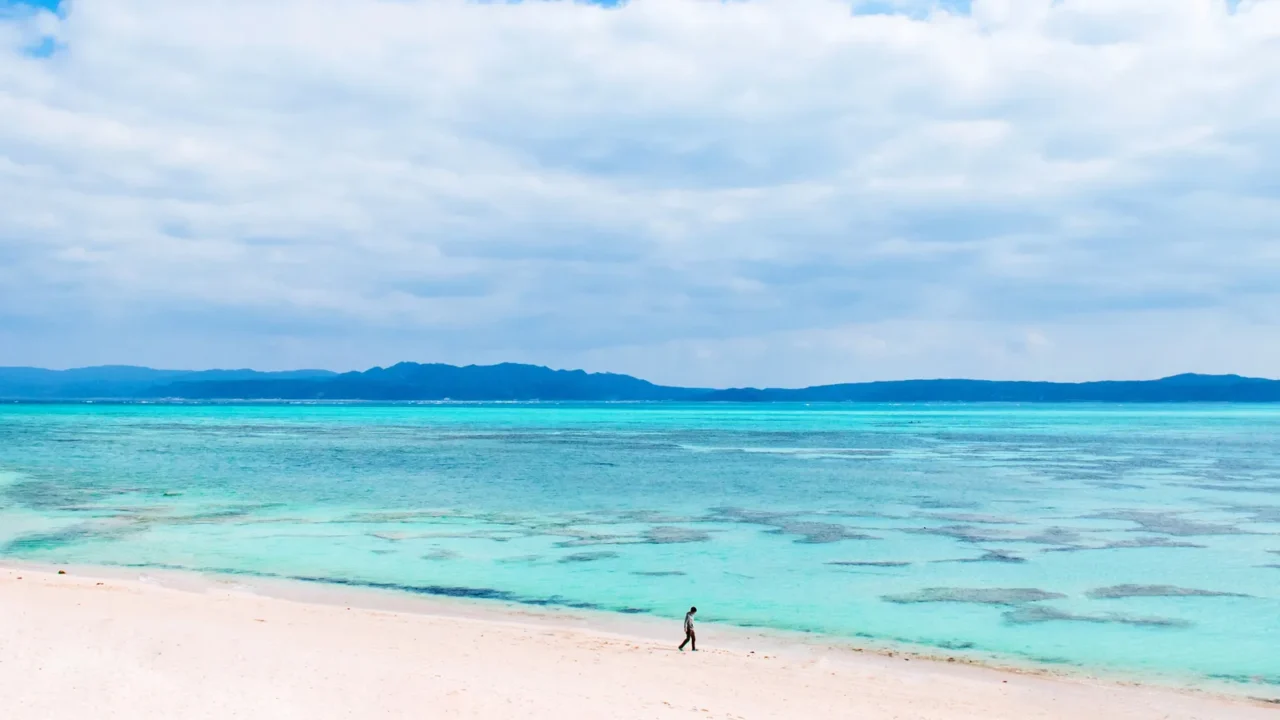
Chichibugahama Beach, Kagawa
At low tide, Chichibugahama Beach becomes a mirror to the sky. Best after rain, when the sand smooths naturally, the shallow water reflects sunsets in striking detail.
Often compared to Bolivia’s Uyuni Salt Flats, it’s one of Japan’s most Instagram-worthy spots. Local guides now help visitors time their photos with the tides for perfect results, while summer art festivals add even more creativity to the scene.
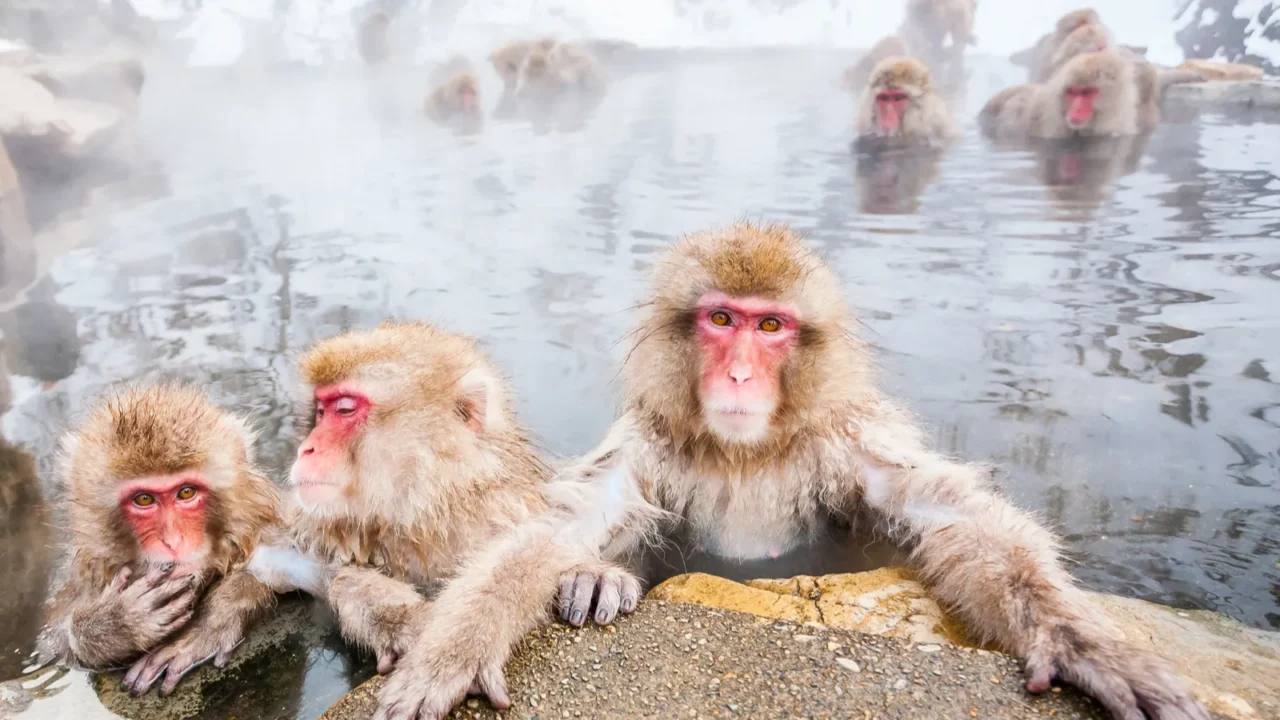
Jigokudani Snow Monkey Park
In Nagano’s mountains, wild macaques bathe in steaming hot springs. Established in 1964, the park protects the monkeys while giving people a rare close look.
Visitors watch them relax against a snowy backdrop, often in large groups. Winter mornings are when the most monkeys gather in the pools, while warmer months reveal playful behaviors as they roam the forest trails.
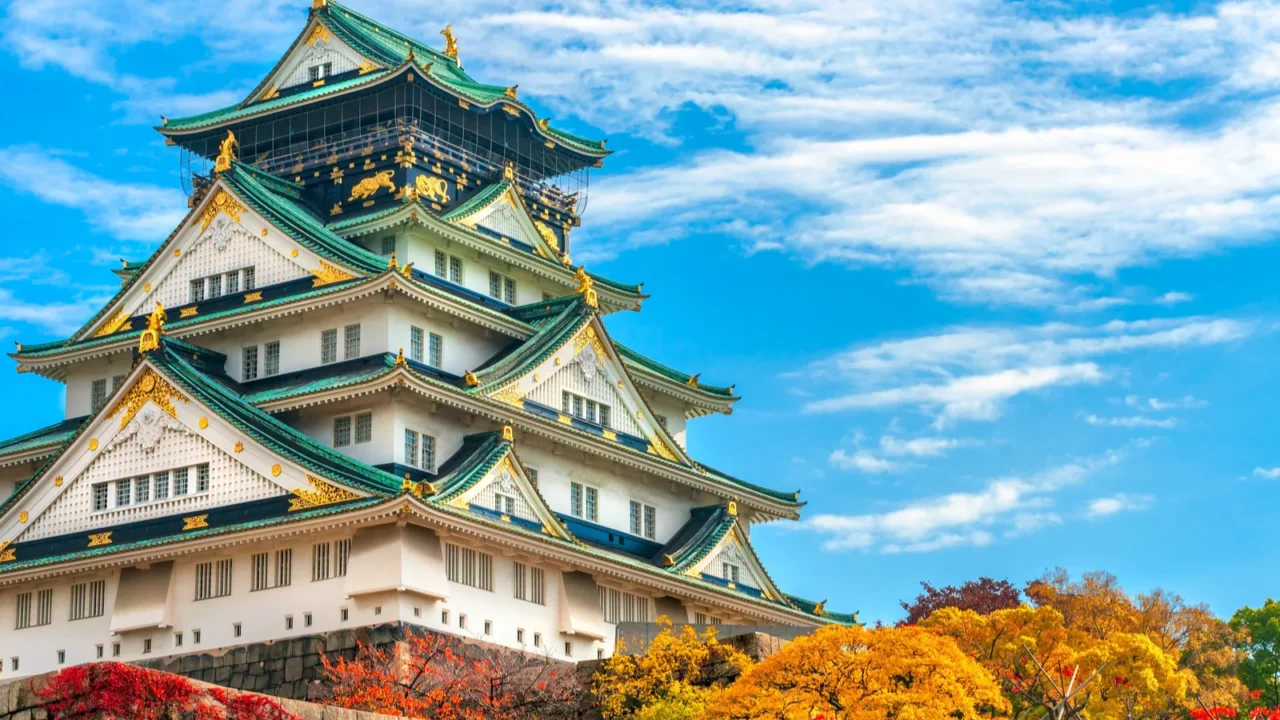
Osaka Castle
Osaka Castle is a symbol of strength, first built in the late 1500s and later reconstructed after battles and fires. Its golden details still shine proudly over the modern skyline.
Inside, a museum shares Osaka’s history through artifacts and exhibits. The surrounding park hosts spring blossoms and lively summer festivals with fireworks, and evening illuminations now highlight the castle walls year-round.
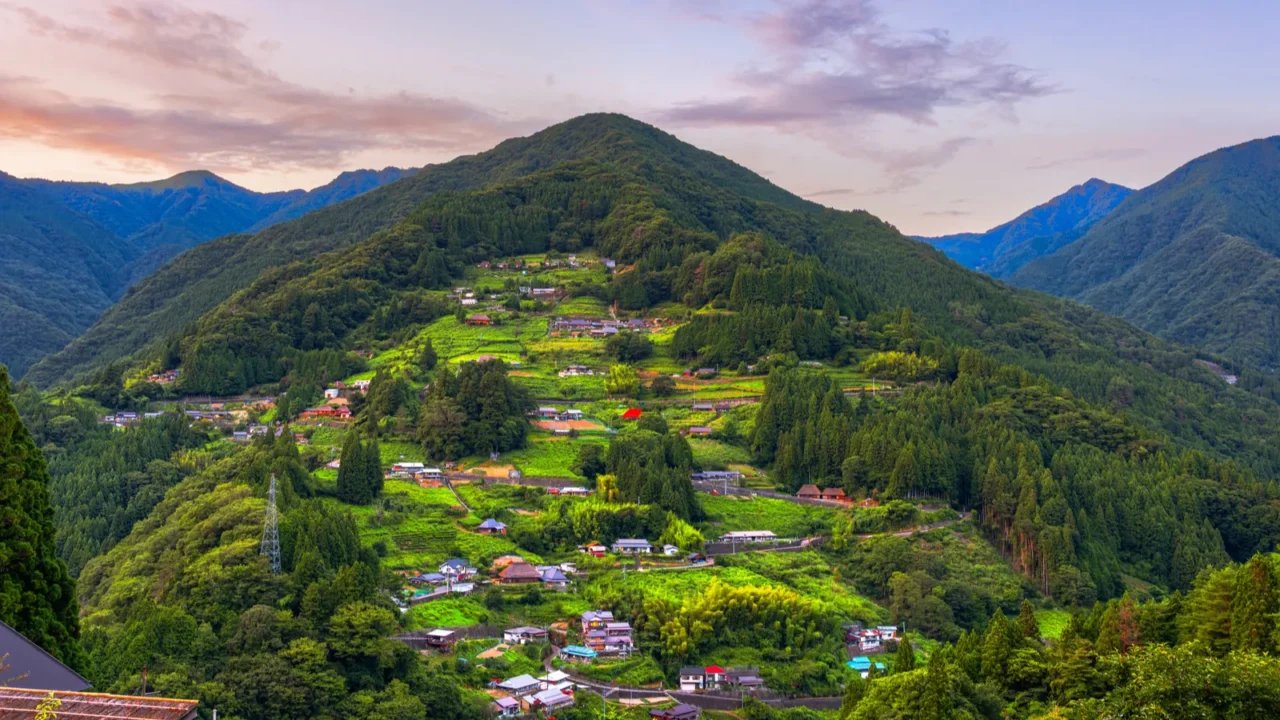
Takamatsu and Iya Valley
Shikoku’s wild beauty shines in Iya Valley, where vine bridges swing over deep gorges. These bridges are rebuilt every three years with fresh vines to keep tradition alive.
Nearby, Takamatsu balances rugged scenery with port-town charm. Its Ritsurin Garden is considered one of Japan’s finest, and a growing network of hiking trails makes exploring the valley even more accessible.
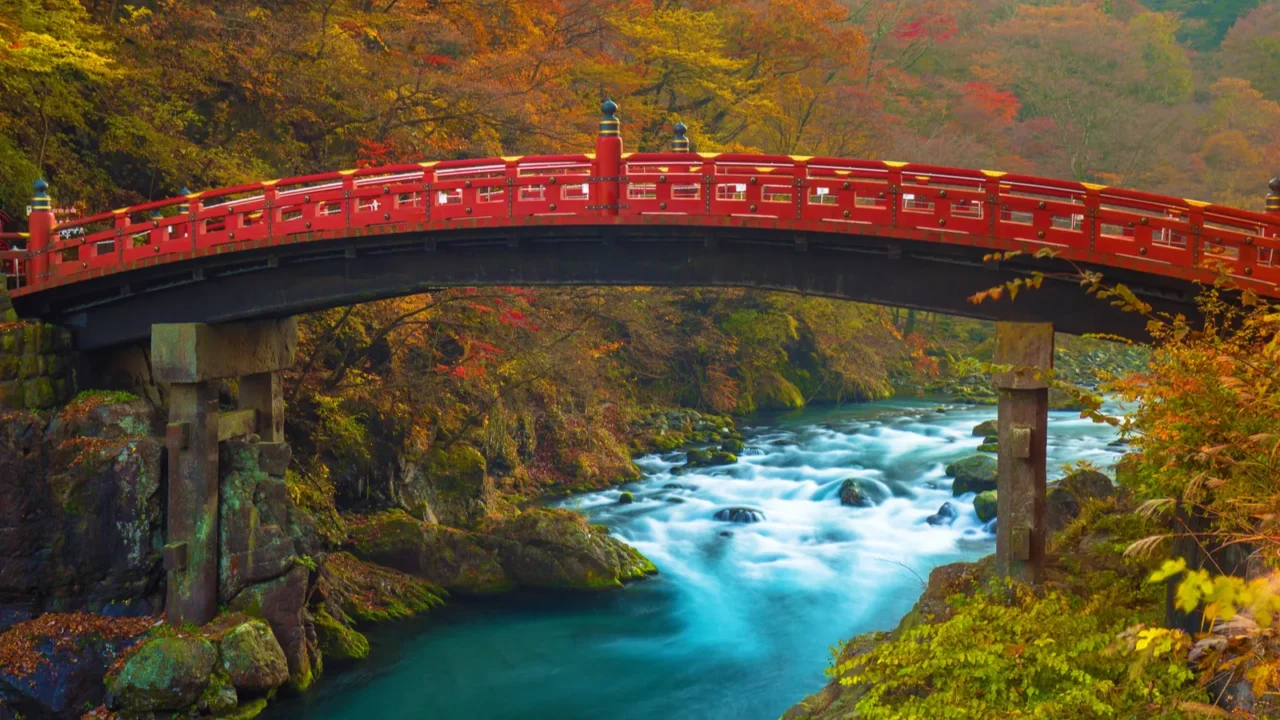
Nikko, Tochigi
Nikko blends heritage and natural beauty, with ornate shrines like Toshogu nestled among ancient cedars. As a UNESCO World Heritage site, it’s one of Japan’s most striking cultural treasures.
In autumn, mountains and waterfalls glow with fiery colors. Nearby Kegon Falls is ranked among Japan’s top three waterfalls, and new shuttle routes now connect key landmarks for easier day trips. You might also want to explore a nearby island that feels like paradise for cat lovers and anyone who finds joy in nature.
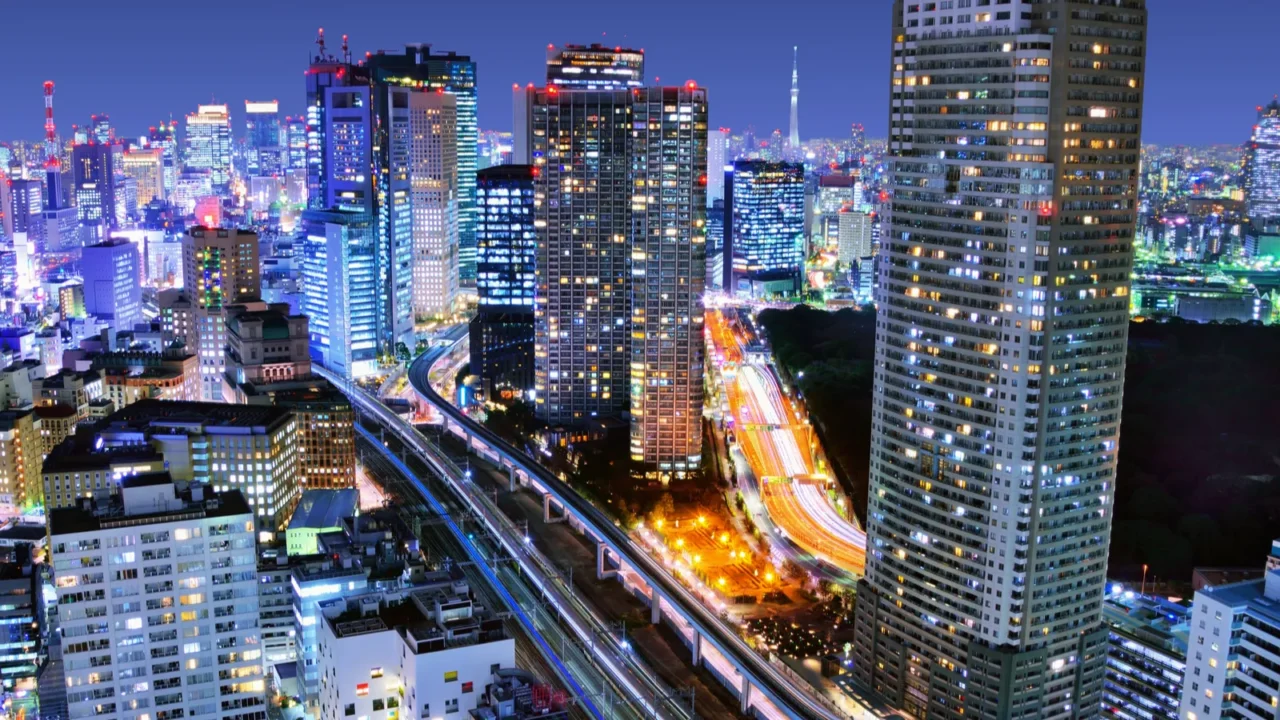
Tokyo’s new skyline views
Tokyo continues to reinvent itself with new towers and rooftop decks. The Toranomon Hills Tower now offers sweeping city views that stretch to Mount Fuji on clear days.
At night, neon streets and riverside walks sparkle with life. Evening boat tours on the Sumida River feature colorful light shows, while observation cafés pair cityscapes with themed seasonal menus. Ready to see why Japan never slips off the world’s bucket list? Here are 20 irresistible reasons it stays number one
Travelers are already buzzing about these spots. Which one do you think deserves the most hype? Drop your thoughts below.
Read More From This Brand:
- The U.S. border Canadians say to avoid on trips to see a loved one
- Planning a New England foliage trip? This Vermont town stands out as truly unique
- Add these 10 epic European monuments to your bucket list
Don’t forget to follow us for more exclusive content right here on MSN.
This slideshow was made with AI assistance and human editing.